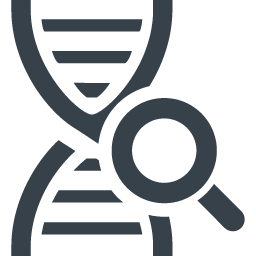 SMARCD2 gene related symptoms and diseases
SMARCD2 gene related symptoms and diseases
All the information presented here about the SMARCD2 gene and its related diseases, symptoms, and test panels has been aggregated from the following public sources: HGNC,OMIM,NCBIGENE,ORPHANET, Mendelian Rare Disease Search Engine.
Top 5 symptoms and clinical features associated to SMARCD2 gene
| Symptoms // Phenotype | % Cases |
|---|---|
| Global developmental delay | Very Common - Between 80% and 100% cases |
| Anemia | Very Common - Between 80% and 100% cases |
| Abnormality of the skeletal system | Very Common - Between 80% and 100% cases |
| Diarrhea | Very Common - Between 80% and 100% cases |
| Recurrent infections | Very Common - Between 80% and 100% cases |
Other less frequent symptoms and clinical features
Patients with SMARCD2 gene alterations may also develop some of the following symptoms and phenotypes:Commonly - More than 50% cases
- Thrombocytopenia
- Pneumonia
- Abnormality of the pinna
- Neutropenia
- Nail dysplasia
- Recurrent otitis media
- Chronic diarrhea
- Recurrent bacterial infections
And 3 more phenotypes, you can get all of them using our tools for rare diseases.
Rare diseases associated to SMARCD2 gene
Here you will find a list of rare diseases related to the SMARCD2. You can also use our tool to get a more accurate diagnosis based on your current symptoms.
RECURRENT INFECTION DUE TO SPECIFIC GRANULE DEFICIENCY
Alternate names
RECURRENT INFECTION DUE TO SPECIFIC GRANULE DEFICIENCY Is also known as neutrophil-specific granule deficiency
Description
Specific granule deficiency-2 is an autosomal recessive immunologic disorder characterized by recurrent infections due to defective neutrophil development. Bone marrow findings include hypercellularity, abnormal megakaryocytes, and features of progressive myelofibrosis with blasts. The disorder is apparent from infancy, and most patients die in early childhood unless they undergo hematopoietic stem cell transplantation. Some patients may have additional findings, including delayed development, mild dysmorphic features, and distal skeletal anomalies (summary by Witzel et al., 2017).For a discussion of genetic heterogeneity of SGD, see SGD1 (OMIM ).
Most common symptoms of RECURRENT INFECTION DUE TO SPECIFIC GRANULE DEFICIENCY
- Global developmental delay
- Anemia
- Abnormality of the skeletal system
- Diarrhea
- Recurrent infections
More info about RECURRENT INFECTION DUE TO SPECIFIC GRANULE DEFICIENCY
Search interest in SMARCD2
Potential gene panels for SMARCD2 gene
Severe Congenital Neutropenia Sequencing Panel with CNV Detection Panel
 United States.
United States.
By PreventionGenetics PreventionGenetics Severe Congenital Neutropenia Sequencing Panel with CNV Detection that also includes the following genes: SMARCD2 TAZ WAS WIPF1 WDR1 VPS45 HAX1 SBDS LYST VPS13B
More info about this panel United States.
United States.
Primary Immunodeficiency Panel Panel
 Finland.
Finland.
By Blueprint Genetics Primary Immunodeficiency Panel that also includes the following genes: RMRP RORC CFB BLM SH2D1A SLC7A7 SMARCAL1 SMARCD2 SRP72 BTK
More info about this panel Finland.
Finland.
Comprehensive Hematology Panel Panel
 Finland.
Finland.
By Blueprint Genetics Comprehensive Hematology Panel that also includes the following genes: RHAG RIT1 RPL11 RPL15 RPL35A RPL5 RPS10 RPS19 RPS24 RPS26
More info about this panel Finland.
Finland.
Bone Marrow Failure Syndrome Panel Panel
 Finland.
Finland.
By Blueprint Genetics Bone Marrow Failure Syndrome Panel that also includes the following genes: RIT1 RPL11 RPL15 RPL35A RPL5 RPS10 RPS19 RPS24 RPS26 RPS29
More info about this panel Finland.
Finland.
Congenital Neutropenia Panel Panel
 Finland.
Finland.
By Blueprint Genetics Congenital Neutropenia Panel that also includes the following genes: SMARCD2 SRP72 WAS WDR1 ACTB MRTFA VPS45 HAX1 SBDS LYST
More info about this panel Finland.
Finland.
Tempus xO assay Panel
 United States.
United States.
By Tempus Labs, Inc. Tempus xO assay that also includes the following genes: BCL6 RHEB RIPK1 RIPK2 RIPK3 RIT1 BCL7A BCL9 BCR ROBO2
More info about this panel United States.
United States.
If you liked this article maybe you will also find interesting the following in-depth articles about other rare diseases, like ADAMTS17 ADD3 POC1A COX8A MYOT